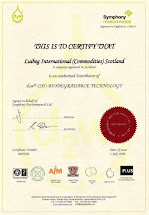India Proposes New Rules on Plastic Containers
with Far-Reaching Implications
Dec 15, 2009
The Indian Ministry of Environment and Forests (MEF) proposed new regulations that would effectively ban the use of recycled or biodegradable plastics in food contact packages, in addition to imposing significant other requirements. Draft notification S.O. 2400(E), or the "Plastics (Manufacture, Usage and Waste Management) Rules" (Plastics Notification), applies to "containers," which are defined in the regulations to include "flexible or rigid containers made of virgin plastic or recycled plastics or biodegradable plastics with or without lid used to store or dispense commodities."
Section 5(b) of the Plastics Notification states, "no person shall use carry bags or containers made of recycled plastics or biodegradable plastics for storing, carrying, dispensing or packaging foodstuffs." Keller and Heckman LLP submitted comments on the Notification on behalf of the Society of the Plastics Industry (SPI) and the International Chewing Gum Association (ICGA) opposing the ban. The comments pointed out that: food packaging substances are already regulated by Indian government agencies other than MEF, and that sophisticated processes exist for recycling PET and other plastic materials to produce safe recycled and biodegradable materials for use in food packaging applications.
The Notification also prohibits the manufacture, distribution, and sale of "non-recyclable laminated plastic or metallic pouches, multilayered packaging, and other non-recyclable plastics." Additionally, the proposed rules mandate labeling all plastic bags and containers for commodities to indicate whether they are made from "recycled," "biodegradable," or "virgin" material.
While the Plastics Notification does not expressly ban the use of colorants, it specifies that containers made from virgin plastic be "natural in shade." SPI's comments explain that colorants in food and drug packaging are sometimes used to protect packaged products from ultraviolet rays that can accelerate the degradation of food or reduce the strength of packaged drugs. The comments also point out that consumers identify with certain products and brands by the color of the packaging.
Luibeg Comment:
"The draft Notification of September 17th 2009 issued by the Ministry of Environment and Forests affects the entire plastic manufacturing industry in India and will have a far reaching negative impact if introduced. It is known that there has been a significant reaction from all areas of the industry who have submitted suggestions, strong representation and objections against the proposed Act in it`s current format. Luibeg have submitted alternative proposals which clearly define the different technologies available, i.e. oxo-biodegradable and hydro-biodegradable, together with the correct test protocols and International Standards which should be applied to each technology. (There has been major confusion amongst the various Government Departments as to which test protocol or Standards to follow, resulting in the incorrect methodology being used with resultant test results being wongly issued) We have also argued a case as to why "compostable" is not a route to follow in India and why alternatives to plastic are not a practical solution. We are aware of the fact that many of our customers and industry colleagues have written independently to the Government on this very serious matter, although to date, Symphony and the Oxo-Biodegradable Plastics Association have yet to directly respond. In the meantime, State Governments continue to introduce blanket bans on plastic bag manufacturing, as referred to in the Pune article reproduced on this site and the Indusry suffers as a result of the continuing uncertainty and confusion. As everyone knows, plastic is an established fact of life which will never go away - it is neither a practical nor economical solution to ban the production of plastic products. The solution lies in adopting technology to overcome and control the problems, whilst ensuring that the Industry continues to grow and accept the positive alternatives to protect its future. Panic measures with the introduction of unworkable or unenforceable laws exacerbated by the failure to understand or accept alternative technologies will only create disaster and the problems will still remain unresolved."
Punescoop.com
Complete Ban On Plastic Bags In Pune Soon
Thu Dec 24, 2009
Use of plastic bags of all sizes and shapes will soon be banned in the city. The general body (GB) meeting of the Pune Municipal Corporation on Wednesday approved a resolution enforcing a complete ban on use of plastic bags.
The decision, taken to prevent further degradation of environment due to plastic, will come into force once the state government gives it a final approval.
At the GB, standing committee chairman Nilesh Nikam congratulated all corporators for unanimously supporting the decision. He said the decision assumes significance as it comes a few days after the Copenhagen summit.
Use of plastic bags of all sizes and shapes will soon be banned in the city. The general body (GB) meeting of the Pune Municipal Corporation on Wednesday approved a resolution enforcing a complete ban on use of plastic bags.
The decision, taken to prevent further degradation of environment due to plastic, will come into force once the state government gives it a final approval.
Source: Times Of India Complete ban on plastic bags in Pune soon
At the GB, standing committee chairman Nilesh Nikam congratulated all corporators for unanimously supporting the decision. He said the decision assumes significance as it comes a few days after the Copenhagen summit.
The proposal banning use of plastic bags was first moved by corporators Ashok Yenpure and Dilip Umbarkar in May this year. The standing committee had approved the proposal in the wake of the solid waste mangement imbroglio the city had to face following agitations by residents of Urali and Phursungi, where city's waste is dumped.
While the civic administration made no statement on how the ban on use of plastic bags will be implemented, corporators demanded that action should be taken against all traders, shopkeepers, hawkers and vendors who keep such bags.
Meanwhile, in another decision, the general body approved a proposal to transport 100 metric tonnes of organic waste for generation of biogas if any person was willing to implement it on land



No comments:
Post a Comment